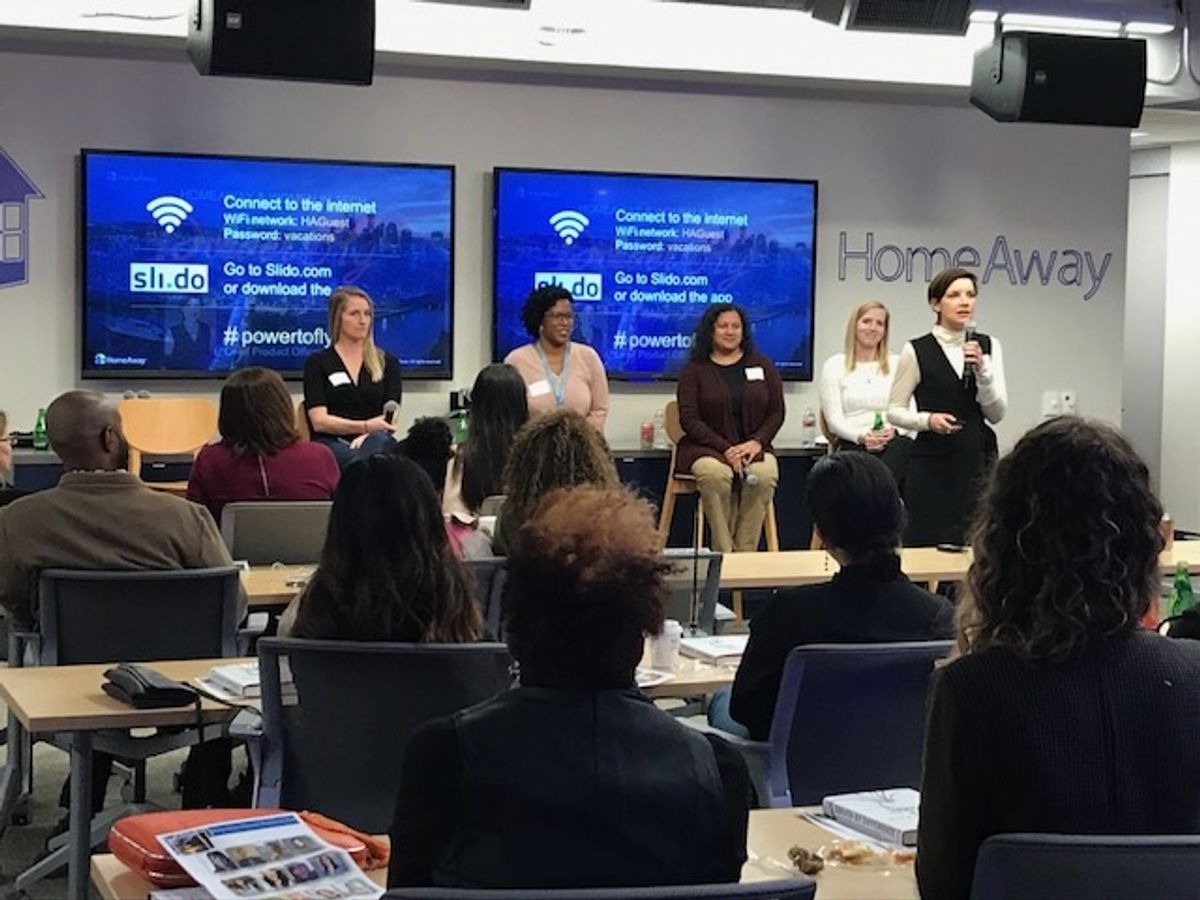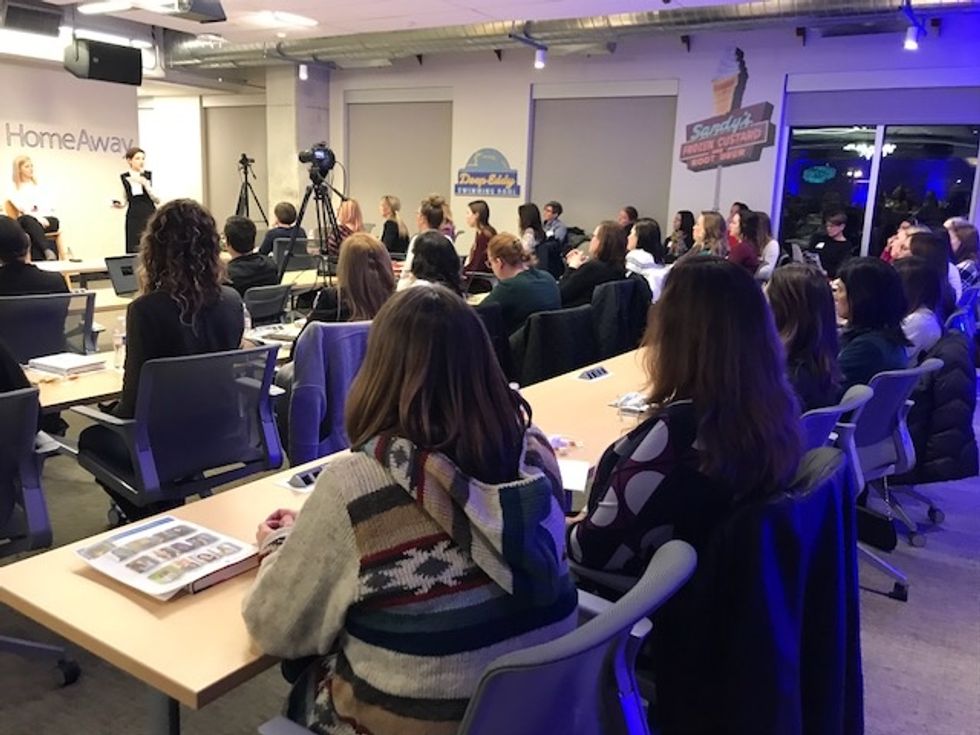When you convince more than 100 women in tech to come to an event on one of the coldest nights of the year, you want to have a stellar line up of executives from one of Austin's top companies discussing their diversity and tech initiatives. That's exactly what happened on January 17th when Vrbo and PowerToFly hosted an evening that included Vrbo's president, members of its executive team, and the CEO of Expedia, Vrbo's parent company.
For people who couldn't attend, we wanted to share a few quotes and anecdotes that moved the conversation forward in the room.
- Vrbo President, John Kim: "In the last two years, there has been an awakening in diversity and inclusion. We are not going back."
- Expedia CEO, Mark Okerstrom discussed how Expedia has made diversity a major initiative at the company by increasing the number of women on the Expedia board and expanding the number of women vice presidents.
- Tina Weyand, Chief Product Officer at Vrbo discussed how "ideas can come from anywhere." She detailed how feedback has been key to her career. In fact, feedback is so valued at HomeAway that managers and teams recently received six hours of training on how to give constructive feedback that is actionable and unbiased.
- Siobhan Burch, a Software Engineer at Vrbo, shared advice about returning to the workplace, something she herself has done after taking a five year break to raise her family. Burch leveraged her network of female supporters and kept herself sharp via internet courses to ensure that the transition back to the workforce was a successful one.
- Vrbo Senior Strategic Data Analyst Nikole Phillips also stressed the importance of ongoing education citing advice her single mother gave her growing up in a low-income neighborhood in Philadelphia. "People can take anything away from you but they can't take the brain out of your head."
- As one attendee, Violeta Albrecht, noted, it's important for women to not feel the need to hold back but to rather have a strong and equal voice at meetings, especially when you are one of the only women in the room. "I've taken myself off mute."
For more information on Vrbo's gender diversity initiatives and jobs follow their company page.
You may also like View more articles
A look at our 2024 Empower Her summit
Apr 05, 2024
Open jobs See all jobs





